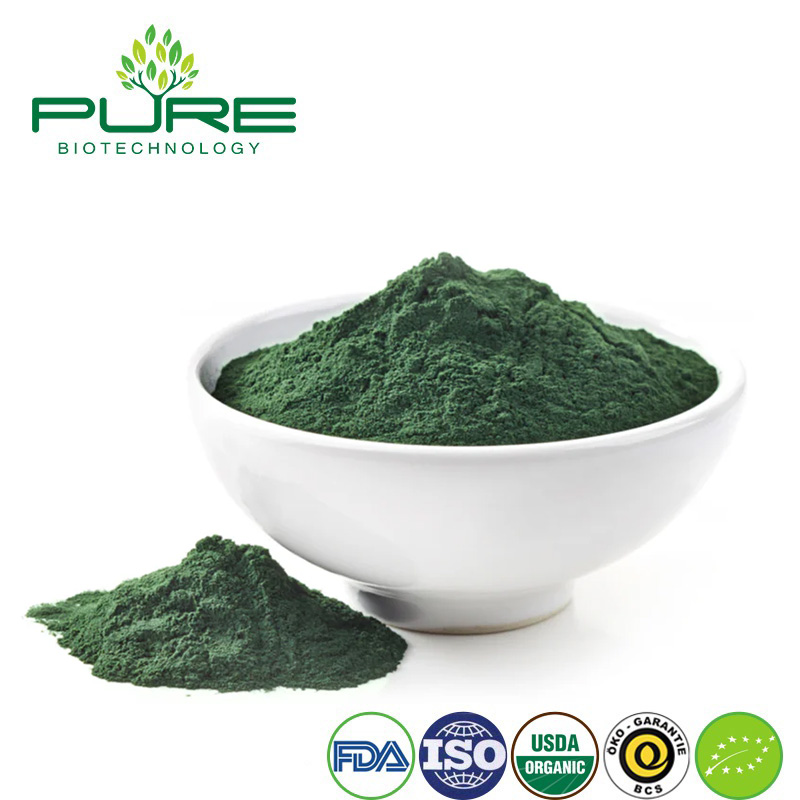Spirulina powder is truly a multifunctional nutritional treasure. It is rich in various nutrients such as proteins, vitamins, and minerals. According to research, spirulina powder contains about 60-70% protein, which is much higher than many other food sources. It also contains essential amino acids that are crucial for the human body. In addition to proteins, it is abundant in vitamins such as vitamin B12, which is rare in plant-based foods. Moreover, spirulina powder contains minerals like iron and calcium, which are important for maintaining good health. Due to these outstanding nutritional values,
spirulina powder has a huge market demand potential. It is widely used in health products and functional foods.

According to market research, the current global
spirulina powder market has reached a certain scale. The global demand for health products and functional foods has driven the continuous expansion of the spirulina powder market. Currently, the market size is estimated to be several billion dollars.
With the increasing awareness of health and the continuous development of the food and health products industry, the market for spirulina powder is expected to continue to grow. Industry analysts predict that in the next few years, the global spirulina powder market will maintain a stable growth rate. The growth will be driven by factors such as the rising demand for natural and healthy products, the development of new applications in the food and cosmetics industries, and the expansion of emerging markets.

Spirulina powder is rich in a variety of nutrients. It contains a high amount of protein, with some sources suggesting it can have up to 70% protein content. This protein is of high quality and contains all the essential amino acids necessary for the human body. In addition to protein, spirulina powder is abundant in vitamins. For example, it contains vitamin B12, which is crucial for nerve function and the formation of red blood cells. It also contains vitamin E, an antioxidant that helps protect cells from damage. Moreover, spirulina powder is a good source of minerals such as iron, which is important for oxygen transport in the body, and calcium, which is essential for strong bones.
Spirulina powder offers several health benefits. One of its notable advantages is its potential to help prevent and manage the "three highs" - high blood pressure, high blood lipid, and high blood sugar. Studies have shown that certain components in spirulina can help regulate blood pressure and lipid levels. In terms of gastrointestinal health, spirulina powder can be beneficial for chronic gastrointestinal diseases and peptic ulcer. It can help soothe the digestive tract and promote healing. Additionally, spirulina powder has been found to have a positive effect on constipation and hemorrhoids. It can also aid in weight management and beauty care.
Food-grade spirulina powder is widely used in health foods and as an additive in other foods. It can be found in various forms such as capsules, tablets, and powders. Many health food companies incorporate spirulina powder into their products to enhance their nutritional value. For example, it can be added to smoothies, energy bars, and breakfast cereals. The addition of spirulina powder not only increases the protein and vitamin content of these foods but also provides a natural green color and unique flavor.
Feed-grade spirulina powder is commonly used in aquaculture and livestock farming. In aquaculture, it can be added to fish and shrimp feeds to improve the growth and immunity of aquatic animals. Spirulina powder is rich in nutrients that are essential for the development of aquatic organisms. In livestock farming, it can be added to feed for pigs, cows, and chickens. It can enhance the nutritional value of the feed and improve the health and productivity of livestock.

Product quality and industry standards are of utmost importance in the spirulina powder market. Quality control measures should be implemented throughout the production process to ensure the safety and effectiveness of the product. This includes strict sourcing of raw materials, proper processing methods, and rigorous testing for contaminants. The industry should adhere to national and international standards such as GB/T 16919-2022 in China. These standards specify the quality requirements for edible spirulina powder, including parameters such as protein content, heavy metal limits, and microbial contamination. Compliance with these standards helps to build consumer trust and ensure the sustainable development of the industry.
The regulatory policies for
spirulina powder have both positive and negative impacts on the industry. On the positive side, strict regulatory requirements help ensure the quality and safety of spirulina powder products, which builds consumer trust and promotes the sustainable development of the industry. By setting standards for production and labeling, regulatory policies also help to standardize the market and reduce the occurrence of substandard and counterfeit products. In addition, regulatory policies can encourage innovation and research and development in the industry by providing a clear framework for product development and marketing.
However, regulatory policies can also have some negative impacts on the industry. For example, strict regulatory requirements can increase the cost of production and marketing for manufacturers, which may lead to higher prices for consumers. In addition, regulatory compliance can be a burden for small and medium-sized enterprises, which may limit their ability to compete in the market. Moreover, regulatory policies may sometimes be overly restrictive, which can stifle innovation and limit the development of new products and applications.
To address these challenges, the industry needs to work closely with regulatory authorities to ensure that regulatory policies are practical and effective. Manufacturers should also invest in quality control and research and development to meet regulatory requirements and improve the quality and safety of their products. By doing so, the industry can ensure its sustainable development while also meeting the needs of consumers.



